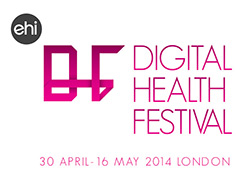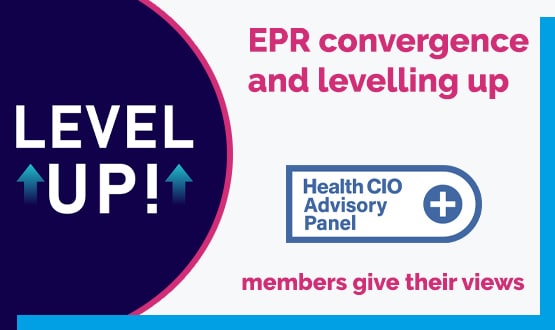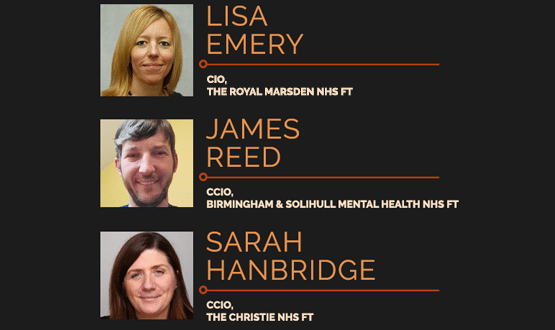New brooms, old guards, core values
- 9 April 2014

Just why is it so difficult to learn from the experience of others? Is the latest ‘new broom’ always doomed to repeat the mistakes of the ‘old guard’?
Chances are that they always will – but here are some personal reflections on how we might be able to make Ground Hog Day occur just a little bit less frequently.
The new broom and the old guard
The first step that new brooms have to take is to reject the notion that it is not in their interests to engage too closely – if at all – with the old guard just because they have been brought in to symbolise a deliberate and clean break with the past.
Distance lends perspective; but distancing distorts the view. Previous failures may indeed have involved a degree of incompetence. But in some cases they may have been no more than an inability to live up to expectations that were entirely unrealistic in the first place.
Either way, those implicated are often retrenched, retire or reorganised in an act of public cleansing to clear the decks for the next wave of new brooms untainted by the problems of the past.
Battalions of the old guard, bruised and battered by their experience, have little opportunity or indeed motivation to tell the war stories of how they got their battle scars.
Sometimes, this is actively reinforced through binding confidentiality agreements that legally restrict what people can say without significant personal cost and financial penalty.
Not all experience is lost. Some of it is recycled through external consultancy; the trouble is that the NHS ends up paying a premium to take advantage of what it paid the same people to gain the first time around.
Those who choose to remain (or simply have no other option) can find it difficult to re-invent themselves, and end up being perceived as chronic ‘nay-sayers’.
While they continue to work in a system that publicly espouses the value of “learning lessons”, in practice this ends up being confused with “spreading the blame”. There is little incentive to convert shortcomings into solutions.
On top of this there is an inherent mistrust of personal stories; mainly because they are unreliable memoirs. Everyone “has an angle” after all.
Failed responses
Organisations attempt to cope with this bias through institutional mechanisms. Over the years, many reports and books have been written by auditors, parliamentary committees, journalists and individuals and (as matters of record and works of reference) they have their place.
Publication provokes much sound and fury but when the dust settles, it does so mostly on all those self-same fine works, which are rarely re-read (or even known about) by the new brooms.
It’s time to accept that there is no such thing as “one version of the truth” and to embrace story telling as one of the most powerful ways of explaining and conveying “what really happened” (an idea taken forward by the ‘last witness’ website, which tells personal stories of NHS IT, in order to find out whether there are common threads and themes that can be further explored).
Otherwise, each successive “failure” is inevitably followed by a strengthening of “governance”; which is often a disguise for introducing even tighter controls. The assumption is that risk can be reduced to a vanishing point through more scrutiny and a bigger rule book.
Quality control dominates over quality assurance. Inspectors proliferate. Individual professionals become even more disengaged, introspective and alienated.
This makes it even more difficult to learn from mistakes. Attempting to manage complex systems through increased bureaucracy never works.
Committee structures mushroom, bucks are passed, stakeholders lose interest and retreat, decision making slows down, progress on delivery slows to a crawl and, as a result, benefits to patients are delayed or lost forever.
So, despite all of the rhetoric, the system never learns because it closes in on itself when it should be opening up. What is needed is a leadership style that fosters simplification by promoting trust, honesty and integrity, where feedback of all sorts is welcomed, listened to and acted upon quickly, for the common good.
Although this might seem counter intuitive as a response to what is often perceived to be a “catastrophe”, it is essentially no more than a description of the core values of professionalism.
Professionalism matters
At the heart of all professional disciplines lies a body of knowledge. One of the main responsibilities of all professional organisations is to gather the hard won experience of their members, combine it with current best practice and pass it on by encouraging professional communities to assemble, communicate and share.
Much of this can be (and is being) done through self organisation and good will. But history shows that this is never enough. Active professional bodies are essential to preserve and transfer corporate memory, particularly at the time of ‘the changing of the guard’.
However, for any profession to be credible, it needs to be independent, inclusive and self sustaining. It needs to be founded on a strong and stable platform constructed from codes of conduct and ethics, professional standards, voluntary registration, accreditation and regulation.
Regular EHI readers will have noticed that informatics took the first step in this direction at the 2014 Healthcare Computing Conference.
BCS, the Chartered Institute for IT, UK CHIP and the Institute of Health Records and Information Management announced they would be working together to form a new federation for the informatics profession.
Now, it’s very important for all those who care about Informatics in the NHS to get involved – and you can start to do this if you visit the UK CHIP website to find out more about UK Informatics, and how to get involved. Let us know what’s important to you and tell us why.
Finally, let’s remember that the reputation of any profession is determined by the lowest standards that it tolerates not the highest that it has achieved.
Informatics is no different. We need to build the professional credibility to be able to speak loudly with one independent voice that has the courage to tell truth to power. After all, every new broom is just an old guard in the making.

Gwyn Thomas will be delivering the keynote address at a BCS Assist Mentoring Day that forms part of EHI’s Digital Health Festival. Dr Thomas will be talking about ‘why mentoring can help you achieve what you want to achieve in your career’ at the event, which will take place on 15 May at the University of Birmingham.
Full details of the Digital Health Festival are on its website. Don’t forget about the EHI Pub Quiz, which takes place in King’s Cross, London, on 14 May; we look forward to seeing you there!

The Health CIO Network is a new, independent national network of chief information officers and other healthcare leaders. Visit its dedicated web pages or email EHI editor Jon Hoeksma for details.




